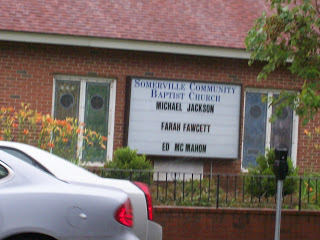…we can always depend on drama when it comes to commencement speakers at Catholic colleges.
To warn you, this is going to be a rant. It bothered me three years ago and it bothers me now.
My sister Caroline is graduating from BC in a few weeks. I don’t know who her graduation speaker will be yet, only that it won’t be President Obama, who was her freshman convocation speaker (this was in the fall of 2005, when he hadn’t yet announced whether he’d run for president—way to go, BC!). Instead, Obama will be speaking at Notre Dame, a school that any BC football fan is not too fond of.
So, that was an unfortunate choice on his part, but not as unfortunate as the reaction that’s coming from some people at ND. People are calling it a scandal—a scandal!—that Obama was asked to speak and to receive an honorary degree. Mary Ann Glendon is even turning down the award she was going to receive because of it. Why? Because Obama supports abortion rights, to which the Catholic Church is staunchly opposed.
I’m not at all surprised by this. I suspect the culture wars are present on every college campus, but there’s an extra layer added to the arguments when you’re at a Catholic school. At BC, people would always try to validate their opinions by claiming that the Catholic Church was on their side. On the left, people would bring out that argument to try to convince the administration to disinvite Raytheon from the career fair or to ban military recruiters at school. On the right, people would cry Catholic in their arguments against The Vagina Monologues on campus and the gay-straight alliance.
And it’s all such bullshit. If you’re going to invite a politician to speak at a graduation at a Catholic college, I can guarantee you that there’s not one politician whose positions align completely with that of the Catholic Church. The Church is opposed to abortion and stem-cell research, sure, but it’s also opposed to the death penalty and the war in Iraq. Find me one politician who’s against all those things.
“But Katie,” some of you are probably thinking, “you only feel this way because you’re a Democrat and an Obama supporter. Would you object to a Republican speaking at a graduation?”
Funny you should ask, because I wouldn’t, and I didn’t. Three years ago at BC, my commencement speaker was Condoleezza Rice. While I personally don’t like her and don’t agree with her politics, I was excited when I heard she’d be our speaker. I thought it was an honor to have the Secretary of State give our commencement address, and regardless of my views on Rice’s politics, I do think she’s articulate and a good public speaker. And when she did speak, her speech was well-written, well-delivered, and completely devoid of politics.
BC is not a particularly liberal school, but I was astounded at the reaction from a good portion of my graduating class. Protests were held, petitions circulated, armbands that read “Not in My Name” were worn, and backs were turned when Rice received her honorary degree. People tossed around phrases like “not representative of Jesuit ideals” and “against Catholic values.” Outside the school, 200 protesters shouted and held up signs saying things like, “BC Supports Lies and Torture.” There was even a plane flying overhead with a banner that read, “Your war brings dishonor.”
I’m uncomfortable with displays like that for a simpler reason than opposition to this position or that position. People certainly have the right to protest, freedom of speech, yea First Amendment, blah blah blah fishcakes. But common decency tells me that there’s a time and a place for protesting and making statements, and honestly, I just think that protesting anything at a graduation is incredibly rude. This is the thing that a lot of people lose sight of: there would not be a commencement address if there were not a large group of people receiving bachelor’s and advanced degrees. No one is there specifically to hear the speech or see someone receive an honorary degree. They’re there to honor the people who have completed years of studies and earned degrees. I always took it for granted that I’d get at least a bachelor’s degree, and nearly everyone I know has completed college, but according to this recent study, only 29% of US adults can say that, and only about 9% have graduate or professional degrees. Even if it might not seem that way if it’s something you’ve always expected, graduating from college or grad school is a major accomplishment. The commencement speaker might receive an honorary degree, but the people a commencement ceremony really honors are the ones with their names on the diplomas. It seems a shame to let politics and religion get in the way of that.
So to the class of 2009 at Notre Dame: congratulations on graduating, and on snagging Obama as your speaker. Regardless of your political views, I hope you enjoy the speech, since I think even his most zealous opponents would admit that he’s a great public speaker. I should warn you, though, that my graduation started hours later than it was scheduled due to the very tight security we all had to go through, so I don’t envy you that. Also, your football team still sucks.
And to whoever is choosing the speaker for Caroline’s graduation, I really hope you pick an interesting person whose presence is not a matter of national security.
